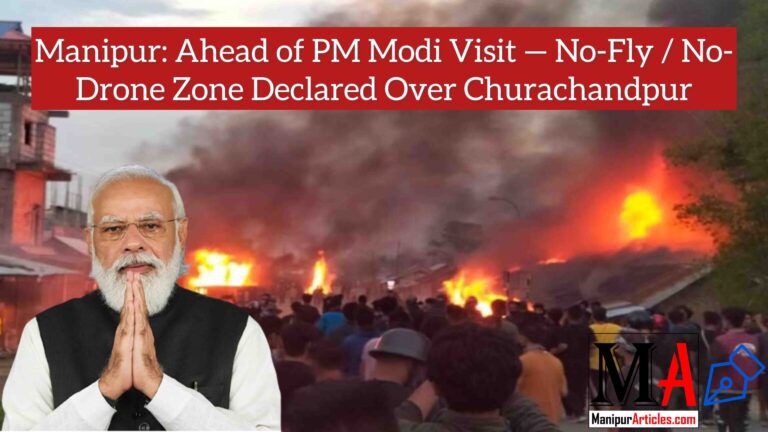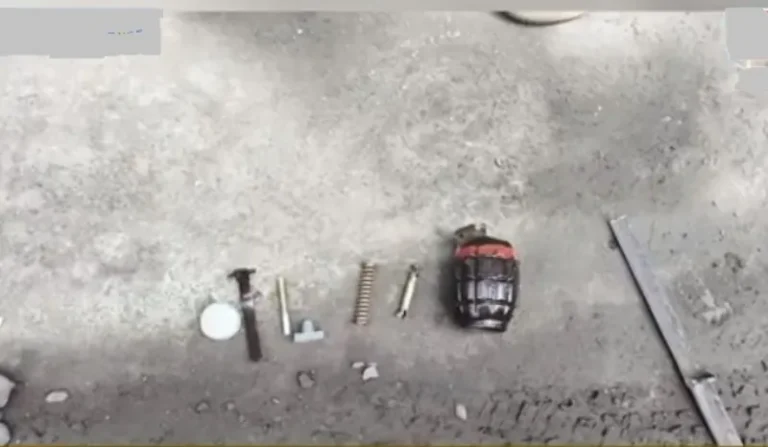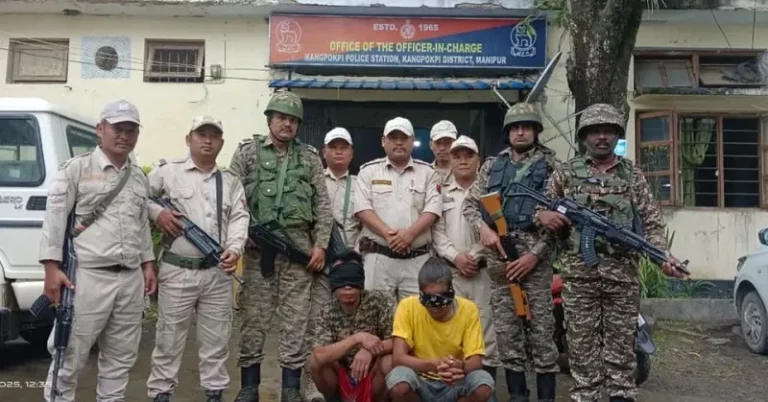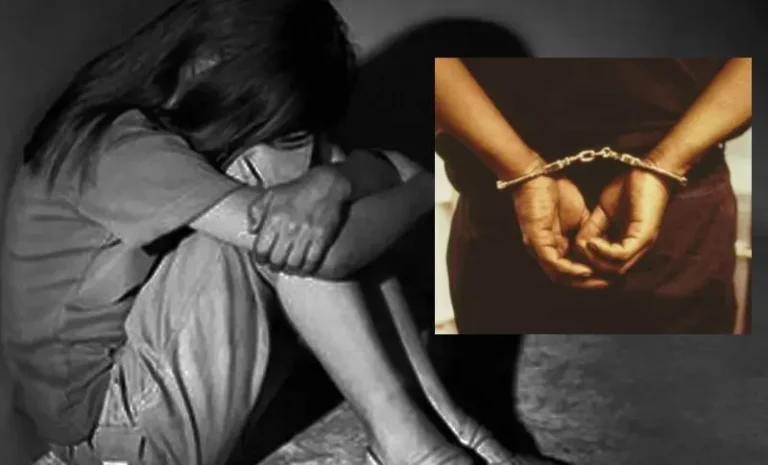Manipur Women Protestors Take Out Meira Rally: A Symbol of Resistance and Solidarity
Manipur, a state with a long history of social movements and protests, witnessed another powerful demonstration as women protestors organized a Meira rally. This traditional form of protest, deeply rooted in the cultural fabric of the state, symbolizes defiance, resilience, and the strength of women in Manipur. The rally, which involved carrying flaming torches through the streets, was more than just a protest; it was a call for justice, peace, and protection of their rights. Let’s delve deeper into the significance of this protest and why it matters.
Summary of the News
On October 3, 2024, women in Manipur organized a Meira rally to protest against the ongoing issues of violence, political instability, and social injustice. The protest saw women carrying flaming torches, symbolizing their fight against the dark forces threatening peace and harmony in the region. The rally highlighted the role of Manipuri women in standing up for their rights and protecting their communities.
The Meira Rally: A Time-Honored Tradition of Protest in Manipur
What is the Meira Rally?
The Meira rally is not a new form of protest in Manipur. “Meira” translates to “torch,” and the rally involves women carrying flaming torches while walking through the streets. This protest form has its roots in the traditional Meira Paibi movement, where Manipuri women would take to the streets at night, holding torches, to protect their communities and demand justice. Over time, it has become a potent symbol of resistance, especially in the face of government neglect or societal issues.
Historically, the Meira Paibi women played a crucial role in protecting the community from violence and fighting against state injustices. These women are often referred to as the “guardians of society” due to their significant role in maintaining peace during times of unrest. The recent rally is a continuation of that legacy.
The Catalyst for the Recent Rally
The ongoing unrest in Manipur has many dimensions, including political, social, and ethnic issues. The women protestors in the recent rally voiced their concerns over the growing violence, instability, and lack of adequate government response. The region has been grappling with ethnic tensions, armed conflicts, and allegations of human rights violations, all of which have pushed women to take up the mantle of protest once again.
Women in Manipur are often at the forefront of protests due to their unique societal roles. The recent rally is a reflection of their resilience, calling attention to the failures of the authorities in addressing the concerns of the people.
Why Do Manipuri Women Lead These Movements?
Manipuri women have long held a strong place in the socio-political landscape of the state. Known for their leadership and courage, women have historically led movements against colonialism, armed conflicts, and social injustices. The Nupi Lan or “Women’s War” in 1904 and 1939, where Manipuri women organized significant protests against British rule and exploitation, is a well-known example of their activism.
In modern times, the Meira Paibi movement is one of the most prominent examples of women standing up against injustice. This movement was born out of a need to combat violence and abuses during times of political turmoil. Women in Manipur, especially through the Meira Paibi movement, have stepped into leadership roles during times when government systems have failed to provide security.
What Were the Protestors Demanding?
The women who took part in the Meira rally voiced several concerns, including:
- Restoration of peace: The growing ethnic conflicts and violence in the region have taken a toll on communities. Women are demanding peace and an end to the violence that has affected their families and loved ones.
- Justice for victims: Many families have lost members due to violence, and the protestors are seeking justice for those who have been wronged. This includes holding perpetrators accountable and ensuring fair trials for victims.
- Government accountability: The protest also highlighted the need for better governance and more proactive efforts from the government to resolve ongoing conflicts in the state. The women urged the authorities to listen to the voices of the people and take concrete steps to restore normalcy.
The Role of Meira Paibi in Today’s Protests
The Meira Paibi movement continues to be a crucial part of Manipuri society. While it was initially focused on protecting the community from armed conflicts, its role has expanded to include advocating for women’s rights, peace, and justice. Today, the movement remains a powerful force, with women stepping up to ensure that their voices are heard.
The recent rally showcases how the Meira Paibi movement is not just a historical relic but a living, breathing movement that continues to shape Manipur’s political landscape. The flames of the Meira symbolize hope, resistance, and the unwavering spirit of women who refuse to be silenced.
The Larger Picture: Women-Led Movements in Northeast India
The Power of Women’s Movements in Conflict Zones
Women in conflict zones across the world often find themselves in positions of leadership and activism, and Manipur is no different. Women’s movements in Manipur are unique because of the cultural respect that the society holds for women, as well as the historical context of their activism. Movements like the Meira Paibi have not only served to protect communities but have also challenged traditional gender roles by placing women at the center of political activism.
Why Women’s Movements Are Crucial for Peace
Women are often seen as the primary victims in conflict zones, but in Manipur, they have been leading the charge for peace and justice. Women’s involvement in movements like the Meira rally is crucial because they bring attention to the human cost of conflict. Their demands for justice and peace stem not just from political grievances but from the lived experiences of losing loved ones to violence.
Women’s movements provide a unique perspective that often gets overlooked in male-dominated political discourses. By leading protests and calling for peace, women in Manipur are pushing for solutions that prioritize human welfare and community well-being over political gains.
Challenges Faced by Women Protestors
Societal Pressure and Gender Roles
While Manipuri women have a strong history of activism, they still face challenges. Gender roles and societal expectations can sometimes place limitations on their ability to protest freely. However, the women of the Meira Paibi movement have continually broken through these barriers by asserting their rights and taking on leadership roles.
Security Risks and Repercussions
Protesting in conflict zones is not without risks. Women who participate in rallies like the Meira protest face security threats, harassment, and even violence. However, despite these challenges, they continue to raise their voices, driven by a sense of duty to protect their families and communities.
The Impact of the Meira Rally
The recent Meira rally has drawn significant attention, both within Manipur and across the country. It serves as a reminder of the critical role that women play in peacebuilding and activism. The rally is not just a protest; it’s a call to action for the government to take decisive steps in resolving the ongoing conflicts and ensuring justice for those affected.
The Meira Paibi movement, through this rally, has once again proven that women are at the heart of Manipur’s fight for peace. The torch flames carried by the protestors are a powerful symbol of hope and resilience, lighting the way forward for a more peaceful and just society.
What’s Next for Manipur?
The path to peace in Manipur is fraught with challenges. Ethnic tensions, political instability, and governance issues all contribute to the complexity of the situation. However, movements like the Meira rally show that the people of Manipur, particularly women, are not willing to stand by passively. They are ready to take charge of their future and demand the justice and peace they deserve.
The government’s response to the rally and other protests will be critical in determining the future course of events in Manipur. Will the authorities listen to the voices of the people, particularly the women who have been at the forefront of these movements? Only time will tell.
FAQs
- What is a Meira rally?
A Meira rally involves protestors, typically women, carrying flaming torches as a symbol of resistance and defiance. It is part of the Meira Paibi movement in Manipur, which aims to protect communities and demand justice. - What issues were raised in the recent Meira rally in Manipur?
The protestors demanded peace, justice for victims of violence, and greater accountability from the government in addressing ongoing conflicts in the region. - Why are women at the forefront of protests in Manipur?
Women in Manipur have historically taken on leadership roles in social and political movements, particularly through the Meira Paibi movement. They are seen as guardians of society and are often the first to protest against injustice. - What challenges do women protestors face in Manipur?
Women protestors face societal pressures, gender expectations, and security risks, including harassment and violence. Despite these challenges, they continue to lead the fight for peace and justice. - How can the government address the concerns raised in the Meira rally?
The government needs to engage in dialogue with the protestors, address their concerns regarding violence and injustice, and work towards inclusive governance that promotes peace and reconciliation.



